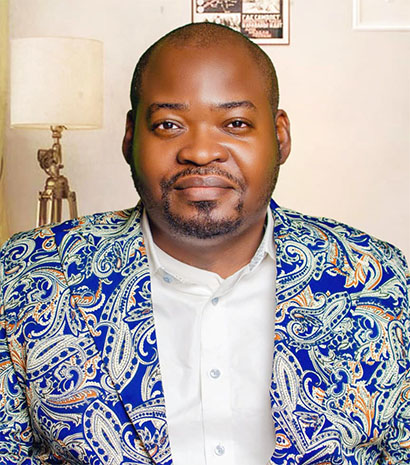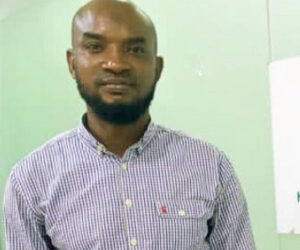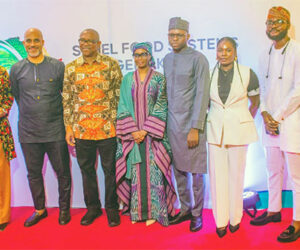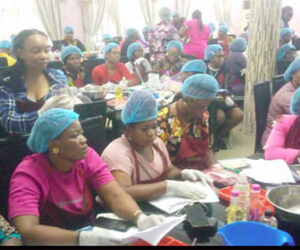1
Engr. Adebola Anofi is the Chief Executive at White Consult, a company that provides alternative power solutions to Nigerians. In this interview with IKECHI NZEAKO, he shares his entrepreneurial journey, challenges and solutions in the Nigerian alternative power sub-sector and other issues. Excerpts:
What services do you provide?
Basically we provide power solutions to homes and others using alternative energy.
How did you get into the business and what was the motivation that led you into the sector?
For me, the motivation was the fact that in the various estates where I live, once it’s 7pm and there is a power outage, you see people carrying kegs, going to filling stations to go and buy fuel.
And there was also the concern that you could not run it overnight; once you turn on the generator, you have to turn it off at a time.
The noise from the generators also gave miscreants the opportunity to wreak havoc on homes and nobody would hear the cry for help because of the noise from the generators. And because of the way the estates are built close to each other, the whole environment is polluted.
I wanted to solve these challenges and this led to starting the company.
And what’s your background? Did you study engineering?
My first degree was in electronic computing and I majored in power.
When did you start the business?
The company is 11 years old.
And how has it been over the years?
Over the years, there have been highs and lows; we’ve had challenges from the beginning. We were one of the early entrants.
Then, we were designing and building inverters locally; then there was a change of government and a change in policy and before you knew it, imported products were cheaper than locally manufactured goods. And this made the imported ones more affordable to the average customer.
As you know, Nigerians have a preference for anything foreign. All these compelled us to join the wagon by transiting to importing our own products as well.
What qualities does somebody need to succeed in this business?
One of the qualities which people do not usually pay attention to is acquiring technical expertise.
It’s very important to have technical expertise because when people bring in products from foreign countries it is not enough to just accept those products because the labels say they have a particular capacity.
You need to have a technical expertise to be able to differentiate the real products from the one that has just been labelled otherwise. That would really give you an edge over people who just buy and sell products.
Technical expertise is one quality that everyone who operates in the industry should have. The other one is adequate capital because the business is capital intensive.
How would you assess the solar power industry in the country?
If you look at the growing curve from when we started 11 years ago to what it is now, you see that the market is down and the competition is stiffer.
Many people have jumped into the market which is also a very big risk because the later entrants are more focused on making profit than giving quality products to the customers which is a very big concern.
The competition has become stiffer and more people have come into the industry. And then I would also say that the regulatory bodies have also become more lenient.
There are now products that are coming into the country which require questioning these regulatory bodies. How do they approve these kinds of products coming into the country? And then I would also say that generally, the public has become more knowledgeable about the solar market. Even the remote areas also want to experience what solar is like.
It is the demand from people in the remote areas that actually made us look at solar solutions which we have just created solely for them.
We call it a Pure White Power Station; it is a White Consult product.
What advice would you give to small business people who want to turn to solar for their power solution?
I would say that there should not be any small business owner who is dependent solely on the grid.
We would admit that over time, it has gradually become the alternative source of power while the solar solution has become the main source of power across all the geographical zones.
Any small business owner who wants to go into business and is serious about doing business must have an alternative power supply to sustain their business and also increase profit margin and reduce the running cost of the business.
And I would like to say that this is one of the reasons why we created the kilowatt power station which is majorly targeted at small business owners to provide power solutions to their basic appliances which help their businesses to continue to grow.
When I say basic appliances, I mean things like their POS machines, fans for comfort, lighting to illuminate the business environment.
What is your assessment of the body that regulates solar power? What do you think can be done to improve the situation and improve service to customers?
The regulatory bodies need to do better in order to protect both the vendors and the customers; the success of this industry lies majorly in their hands.
If they continue to let their guard down, what happened with generators some time ago will happen in the solar sub-sector. We do not want to get to that stage before we start addressing these issues.
So, I would say the regulatory bodies should also improve their training because you can only regulate what you are knowledgeable about.
Regulatory bodies should partner with vendors who offer training in this. They should get to know about what to look out for in these products before approving them or granting them approval.
They should also organise more workshops to sensitise the public as regards products to look out for and also recognise vendors to work with.
What type of training do you give to young people who want to become part of that business? If a young man comes to you and says he wants to do what you are doing, what advice will you give that person?
If someone wants to join this business I advise the person to register for training, which is one of the things we do.
Aside from running a business, we also have a training school where we train people. So far, we have graduated about 70 people in our school.
We train people in basic knowledge of lead and solar systems and how to recommend appropriate solar power and inverter capacity for a user and battery sizes.
I encourage them to go to the training exercises, both the in-class training and on-field training before you can now proceed to start up your own business.
And even when you start up your business, it’s always important for you to have a mentor who will hold your hand and walk you through the path to success.




